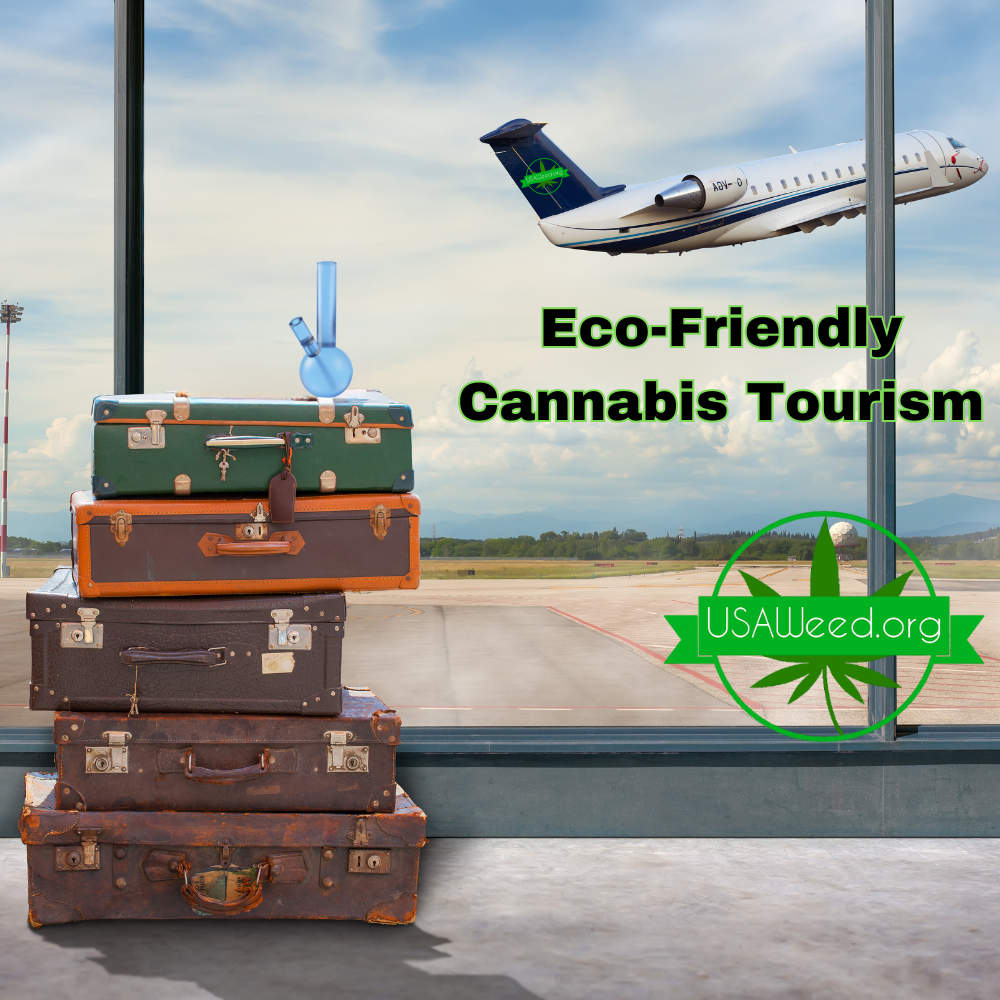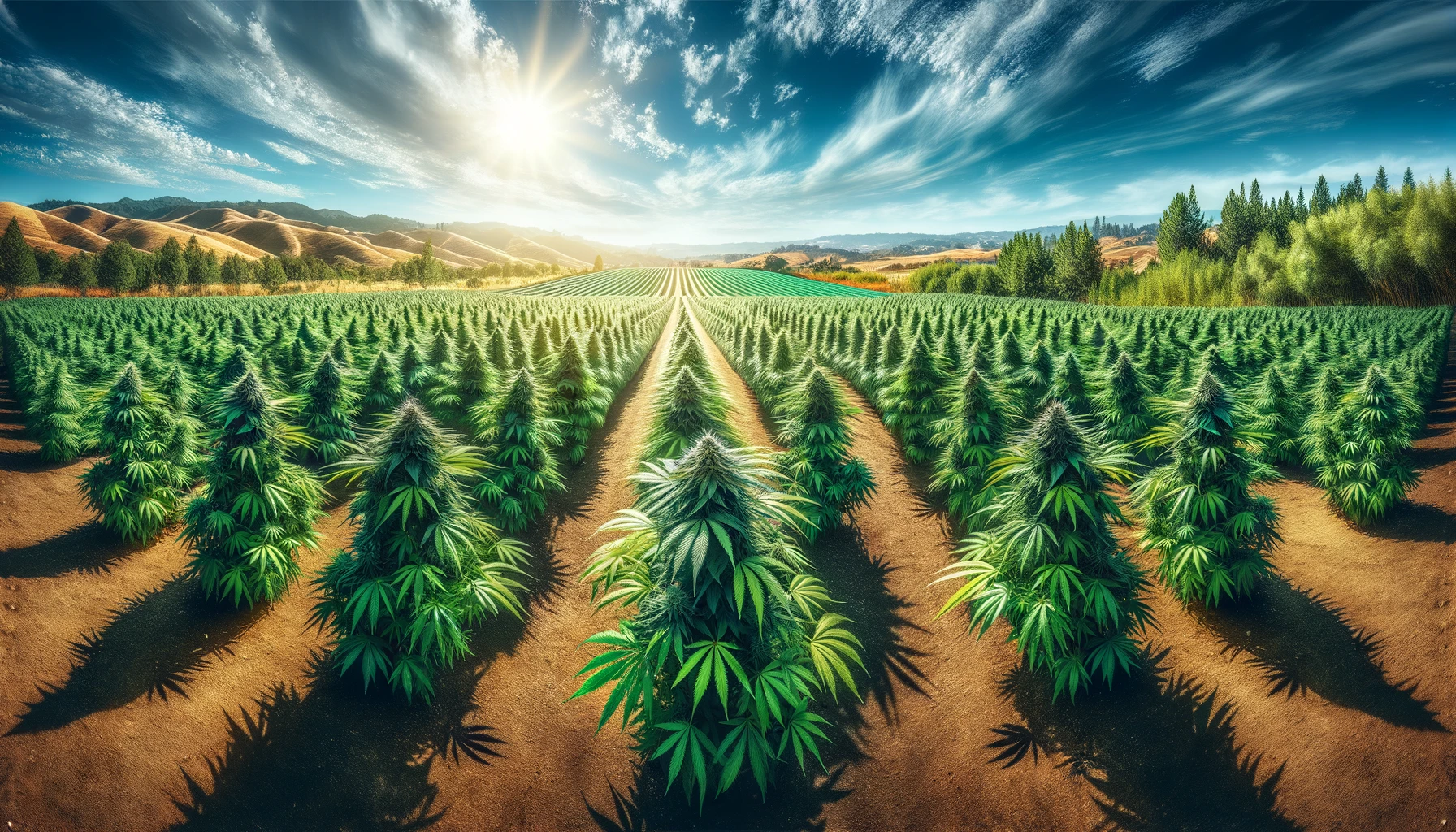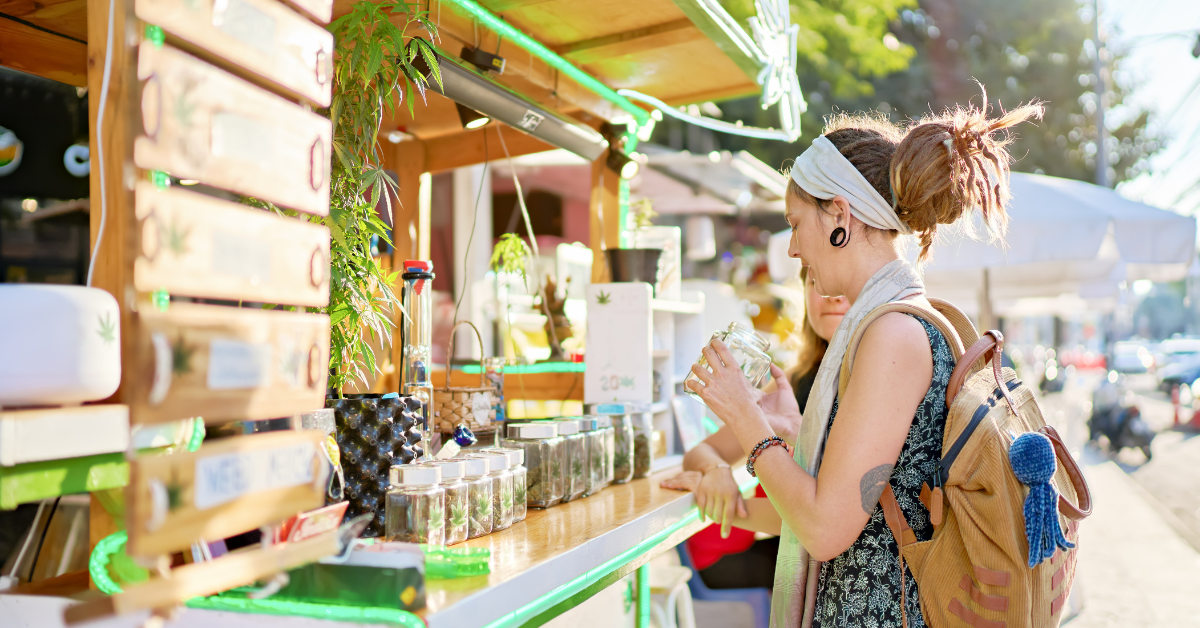In recent years, the burgeoning cannabis industry has seen a significant shift towards sustainability and eco-consciousness, mirroring broader global trends in environmental responsibility.
Cannabis tourism, a niche yet rapidly growing sector, is no exception. As enthusiasts and casual users alike seek out cannabis experiences, there’s a growing demand for options that not only provide enjoyment and relaxation but also ensure minimal environmental impact.

This article dives into the world of sustainable and eco-friendly cannabis tourism, highlighting how it’s becoming an integral part of the industry.
We’ll also explore the nuances between Delta 8, Delta 9, and Delta 10 cannabinoids, offering insights into their roles within the context of responsible consumption.
The Rise of Sustainable Cannabis Tourism
Sustainable cannabis tourism focuses on creating experiences that are environmentally friendly, socially responsible, and economically viable. This approach encompasses everything from the cultivation of cannabis to the operation of tourism-related businesses, ensuring that each step of the process contributes positively to the environment and local communities.
A few things to check out:
1. Eco-Friendly Cannabis Farms Tours
- What’s the Buzz?: Visitors get a firsthand look at sustainable cannabis cultivation practices. Think solar-powered grow operations, organic pest management, and rainwater harvesting.
- Why It’s Cool: It’s educational, engaging, and you get to see where your favorite strains come from, all while keeping Mother Nature in the loop.
2. Green Cannabis Cooking Classes
- What’s Cooking?: Learn to whip up cannabis-infused dishes using locally sourced, organic ingredients in a solar-powered kitchen.
- Why It’s Delicious: Combines the love for culinary arts with cannabis, all while emphasizing sustainable cooking practices. Plus, you get to eat your creations!
3. Sustainable Cannabis Spa Retreats
- What’s the Relaxation Recipe?: Spa treatments utilizing organic, cannabis-infused products in eco-friendly resorts powered by renewable energy.
- Why It’s Zen: Offers a holistic wellness experience that soothes the body and mind, promotes sustainability, and supports the local cannabis industry.
4. Cannabis Eco-Lodges and BnBs
- Where’s the Dream Stay?: Lodging options that offer cannabis-friendly accommodations with an eco-twist—think green building materials, zero waste practices, and locally sourced cannabis amenities.
- Why It’s Dreamy: Provides a unique, sustainable travel experience for those looking to relax responsibly.

Eco-Friendly Cultivation Practices
The foundation of sustainable cannabis tourism lies in eco-friendly cultivation practices. Organic farming methods, water conservation techniques, and renewable energy sources are increasingly being adopted by growers conscious of their environmental footprint. These practices not only reduce the impact on the planet but also result in cleaner, purer products for consumers.
When it comes to cultivating the green in a green way, here are a few eco-friendly cultivation practices that are not only good for the planet but also great for the crop:
- Use of Organic Pesticides: Instead of reaching for chemical warfare, organic pesticides made from natural materials are gentler on the earth and your plants.
- Composting and Natural Fertilizers: Give your plants a boost with compost and natural fertilizers. It’s like a health shake for your crop, providing essential nutrients without the chemical footprint.
- Water Conservation Techniques: Get savvy with water through drip irrigation, rainwater harvesting, or simply being mindful about water usage. It’s like putting your plants on a water diet that actually works.
- Integrated Pest Management (IPM): It’s all about using the least environmentally damaging methods first, not going straight for the bug zapper. Think of it as pest control with a conscience.
- Renewable Energy Sources: Powering your grow operations with renewable energy, like solar or wind, reduces your carbon footprint. It’s like feeding your plants with pure sunshine (or wind!).
- Polyculture and Crop Rotation: Diversify your crop portfolio to improve soil health and reduce pests, without the drama of chemical pesticides. It’s like crop speed-dating, but everyone wins.

Remember, going green isn’t just a trend; it’s a lifestyle. And in the world of cultivation, it’s not only possible, it’s profitable. For those keen on diving deeper into eco-friendly practices or finding great, safe, and tested products, checking out a dedicated site is always a wise move.
Green Accommodations and Experiences
Cannabis-friendly accommodations are embracing green initiatives, from energy-efficient lighting and solar panels to composting and recycling programs. Similarly, cannabis tours and experiences are designed with sustainability in mind, including visits to organic farms, eco-conscious dispensaries, and outdoor activities that respect the natural environment.
Community Engagement and Education
Sustainable cannabis tourism also involves engaging with and giving back to local communities. This can include supporting local businesses, fostering cultural exchange, and educating tourists and residents alike about sustainable practices in cannabis cultivation and consumption.
Understanding Delta 8, Delta 9, and Delta 10

Within the context of sustainable and eco-friendly cannabis tourism, understanding Delta 8 vs Delta 9 vs Delta 10 is crucial for responsible consumption. These cannabinoids are variations of THC, the primary psychoactive component in cannabis, and they offer distinct effects and experiences.
Delta 9 THC
Delta 9 THC is the most well-known and abundant form of THC found in cannabis plants. It’s responsible for the classic psychoactive effects associated with marijuana use, including euphoria, relaxation, and altered sensory perception. Delta 9 is the standard by which other cannabinoids are often measured.
Delta 8 THC
Delta 8 THC is a less potent variant that occurs in much smaller quantities in the cannabis plant. It offers a milder high compared to Delta 9, with many users reporting a clearer, more focused experience. Delta 8 is often touted for its potential to provide relaxation and pain relief without the intense psychoactive effects.
Delta 10 THC
Delta 10 THC is a newer and even less understood cannabinoid. Like Delta 8, it is less potent than Delta 9 and is known for providing a more uplifting and energizing high. Delta 10 is still under research, but early adopters often seek it out for its novel effects.
The Importance of Choice and Education
In sustainable and eco-friendly cannabis tourism, offering choices and educating tourists about the differences between Delta 8, Delta 9, and Delta 10 THC is essential. This not only ensures a more informed and responsible consumer base but also allows individuals to tailor their experiences to their preferences, enhancing the overall enjoyment and satisfaction of their trip.

Enhancing Conservation Efforts
Sustainable cannabis tourism has the potential to play a significant role in conservation efforts. By integrating practices that protect the environment and promote biodiversity, cannabis farms and tourism operators can help preserve natural habitats and wildlife.
For example, eco-friendly cannabis farms can utilize permaculture principles that mimic natural ecosystems, thereby reducing the need for chemical pesticides and fertilizers, conserving water, and enhancing soil health. These practices not only benefit the environment but also offer tourists an educational insight into sustainable agriculture and its importance in conservation.
Elevating the Visitor Experience
Sustainability can significantly elevate the visitor experience in cannabis tourism. Tourists are increasingly seeking authentic, meaningful travel experiences that allow them to connect with local cultures and the environment. Sustainable cannabis tourism can offer these experiences through farm-to-table dining events featuring cannabis-infused dishes prepared with locally sourced ingredients, tours of organic cannabis farms that explain the cultivation process, and participation in local conservation projects.

These experiences not only enrich the tourist’s journey but also foster a deeper appreciation for the plant and its integration into local ecosystems and communities.
Challenges and Solutions
While the prospects for sustainable and eco-friendly cannabis tourism are promising, there are challenges to its implementation. One of the main challenges is the regulatory environment, which can vary significantly between regions and impact the ability to implement sustainable practices. Additionally, there may be a lack of awareness or understanding among consumers and businesses about the benefits of sustainability in cannabis tourism.
To overcome these challenges, education and advocacy are crucial. Tourism operators, local governments, and industry stakeholders can work together to promote the benefits of sustainable practices and develop regulatory frameworks that support eco-friendly initiatives. Additionally, creating partnerships with environmental organizations can help cannabis tourism businesses implement sustainable practices and contribute to conservation efforts.
The Role of Technology
Technology can also play a pivotal role in advancing sustainability in cannabis tourism. Innovations in cultivation technology, such as LED lighting and automated irrigation systems, can reduce energy and water usage. Blockchain technology can be used to ensure transparency and traceability in the supply chain, allowing consumers to verify the sustainability credentials of the cannabis products they consume during their travels.
Looking forward:
Sustainable and eco-friendly cannabis tourism represents a promising path forward for the industry, one that aligns with broader environmental and social values. By prioritizing green practices, community engagement, and responsible consumption, this niche sector can contribute to the positive development of cannabis culture worldwide. As we explore the unique characteristics of Delta 8, Delta 9, and Delta 10 THC within this context, we’re reminded of the importance of education and choice in fostering a sustainable future for cannabis tourism.
